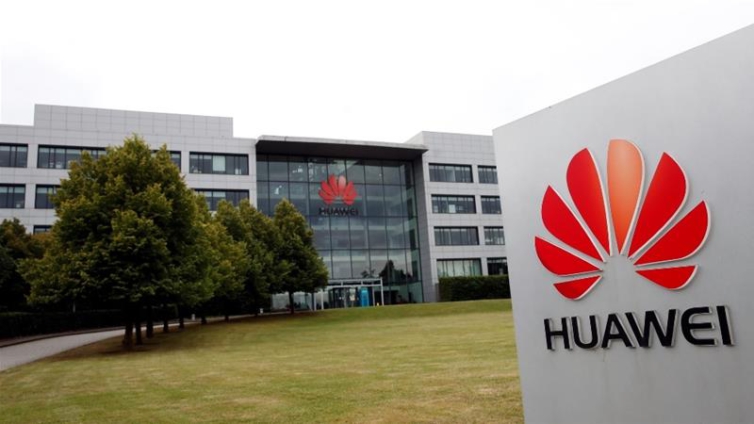The UK approves the phased removal of the Chinese telecoms giant from its 5G network despite warnings from Beijing.
The United Kingdom has bowed to US pressure and approved the phased removal of Chinese telecoms giant Huawei from its 5G network despite warnings of retaliation from Beijing.
Tuesday's policy reversal handed a significant victory to US President Donald Trump's administration in its geopolitical and trade battle with China.
But it threatens to further damage the UK's relations with the Asian power and carries a big cost for UK mobile providers that have relied on Huawei equipment for nearly 20 years.
Oliver Dowden, the UK's digital secretary, announced the move in Parliament on Tuesday after Prime Minister Boris Johnson chaired meetings with his Cabinet and the National Security Council.
"From the end of this year, telecoms providers must not buy any 5G equipment from Huawei," he told MPs.
The new guidelines also require all existing Huawei gear to be stripped out by the end of 2026.
Huawei had been reportedly pushing for the full ban to be delayed till after the UK's next general election, scheduled to take place in 2024, that could potentially bring a new government to power with a more sympathetic approach.
Huawei's reaction
"This disappointing decision is bad news for anyone in the UK with a mobile phone. It threatens to move Britain into the digital slow lane, push up bills and deepen the digital divide. Instead of 'levelling up' the government is levelling down and we urge them to reconsider," Huawei said after the announcement of the ban.
"Regrettably our future in the UK has become politicised, this is about US trade policy and not security."
Johnson angered Trump and upset some members of his own Conservative party by allowing the Chinese 5G leader to help roll out the UK's speedy new data network in January.
The UK was then completing its departure from the European Union and looking to establish strong ties with powerful Asian economies that could fulfil Johnson's vision of a "global Britain".
But the Trump administration told the UK government that its decision imperilled intelligence sharing and could even result in the relocation of some US fighter jets from England.
US stance
Washington believes the private Chinese company could either spy for Beijing or shut down rival countries' 5G networks in times of war.
Huawei has always denied this and pointed to 20 years of cooperation with British security agencies that checked on the safety of its existing 3G and 4G networks.
The British review was triggered by new US sanctions in May that blocked Huawei's access to US chips and semiconductors at the heart of 5G networks.
The restriction raised the possibility of Huawei having to switch from trusted US suppliers to alternatives whose safety could not be guaranteed by UK security agencies.
Latest Stories
-
‘Legal Education Bill to end Makola monopoly’ – Dafeamekpor
30 minutes -
French MPs back law to allow assisted dying
3 hours -
Second suspect arrested in alleged crypto torture scheme
3 hours -
United is narrowing its check-in window for US flights. Here’s how it compares to other airlines
3 hours -
Foreign Minister should pursue quiet diplomacy, not opulism – Minority Caucus urges tact and engagement
3 hours -
Chairman Wontumi hospitalised after arrest – Lawyer says interrogation suspended
4 hours -
‘Ghana is slipping into the dark days’, says NPP after Wontumi’s arrest
4 hours -
‘We still don’t know why he was taken’ – NPP protests Wontumi’s Rambo-style arrest
5 hours -
We’re not leaving until EOCO releases Wontumi – NPP supporters vow
5 hours -
Wontumi was arrested in a rambo style as if he’s a terrorist – Nana B
5 hours -
‘We will resist political harassment’ – NPP fires warning after Wontumi arrest
5 hours -
Trump administration seeks to pull estimated $100m in Harvard funding
5 hours -
Trump administration halts scheduling of new student visa appointments
6 hours -
Nana Fredua-Agyeman Jnr. eulogises Nana Kwasi Gyan-Apenteng
6 hours -
NPP supporters attack JoyNews reporter during Wontumi’s EOCO detention coverage
6 hours

